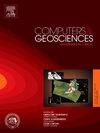Improving generalization through self-supervised learning using generative pre-training transformer for natural gas segmentation
IF 4.4
2区 地球科学
Q1 COMPUTER SCIENCE, INTERDISCIPLINARY APPLICATIONS
引用次数: 0
Abstract
Seismic reflection is an essential geophysical method for subsurface mapping in the oil and gas industry, used to deduce the position and extension of potential gas accumulations through the processing and interpretation of data. However, interpreting seismic reflection data presents inherent ambiguity, as similar signatures may arise from geological scenarios with distinct physical properties. Furthermore, seismic interpretation is costly and labor-intensive, complicating the generation of extensive labeled datasets useful for conventional AI-assisted solutions. The emergence of self-supervised learning techniques has gained significant attention in the AI community, enabling the pre-training of deep neural networks without annotated data. This paper proposes a two-stage method for segmenting natural gas regions in seismic reflection images by using a generative pre-training transformer model for feature extraction and a recurrent neural network for per-seismic trace analysis. In the first stage, we pre-train the feature extractor in a self-supervised fashion under a seismic image reconstruction task. In the second stage, using the pre-trained feature extractor, we train the recurrent neural network for the segmentation of natural gas accumulations in 1D seismic image traces. We conducted quantitative and qualitative experiments on a private dataset to demonstrate how our self-supervised learning methodology helps achieve better gains in model generalization. The increase, which can reach up to 20%, in the F1-Score metric corroborates the latter. Thus, an improvement in generalization corresponds to an increase in success rates in drilling new wells.
基于生成式预训练变压器的自监督学习改进天然气分割的泛化
地震反射是石油和天然气工业中进行地下测绘的一种重要的地球物理方法,通过对数据的处理和解释来推断潜在天然气聚集的位置和范围。然而,解释地震反射数据存在固有的模糊性,因为类似的特征可能来自具有不同物理性质的地质情景。此外,地震解释成本高,劳动强度大,使得大量标记数据集的生成变得复杂,这些数据集对传统的人工智能辅助解决方案很有用。自监督学习技术的出现在人工智能社区引起了极大的关注,使深度神经网络的预训练没有注释数据。本文提出了一种两阶段分割地震反射图像中天然气区域的方法,该方法使用生成式预训练变压器模型进行特征提取,使用递归神经网络进行每震道分析。在第一阶段,我们以自监督的方式对地震图像重建任务下的特征提取器进行预训练。第二阶段,利用预训练的特征提取器训练递归神经网络,用于一维地震图像轨迹中天然气聚集的分割。我们在私有数据集上进行了定量和定性实验,以证明我们的自监督学习方法如何帮助在模型泛化中获得更好的收益。F1-Score指标最高可达20%的增长证实了后者。因此,通用性的提高对应于钻探新井成功率的增加。
本文章由计算机程序翻译,如有差异,请以英文原文为准。
求助全文
约1分钟内获得全文
求助全文
来源期刊

Computers & Geosciences
地学-地球科学综合
CiteScore
9.30
自引率
6.80%
发文量
164
审稿时长
3.4 months
期刊介绍:
Computers & Geosciences publishes high impact, original research at the interface between Computer Sciences and Geosciences. Publications should apply modern computer science paradigms, whether computational or informatics-based, to address problems in the geosciences.
 求助内容:
求助内容: 应助结果提醒方式:
应助结果提醒方式:


